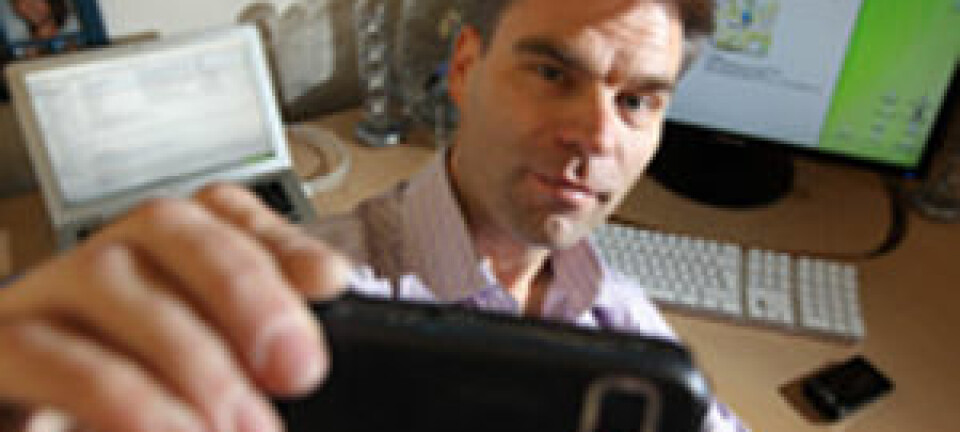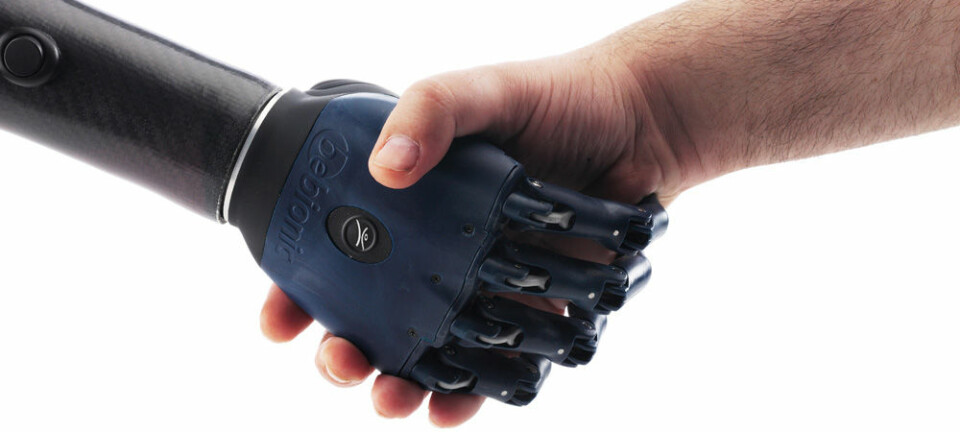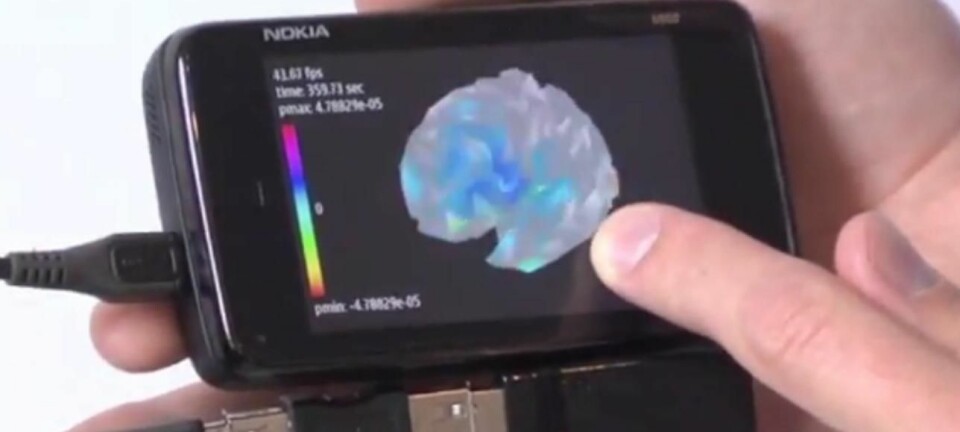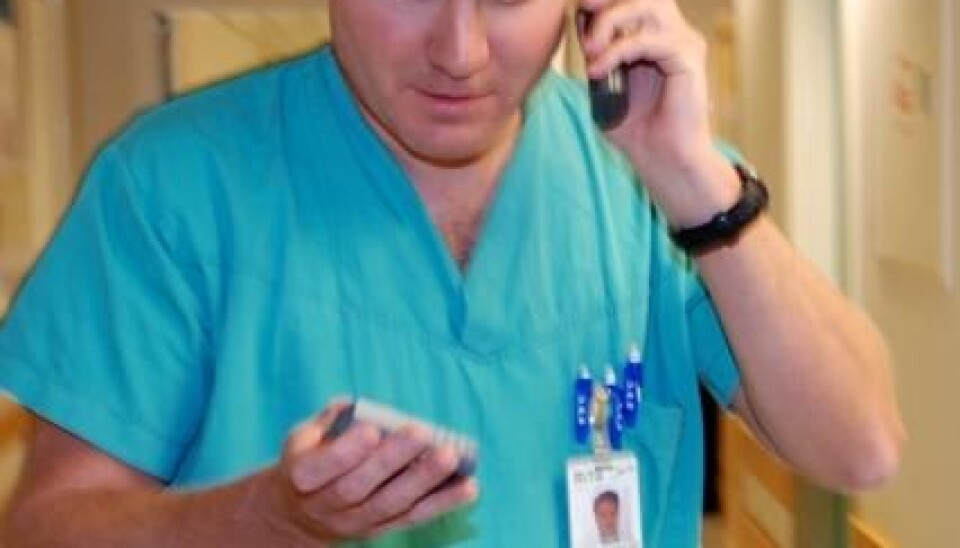
Calls of duty: physicians frustrated by phone interruptions
Many physicians are concerned by phone interruptions during work, a new study reveals.
Denne artikkelen er over ti år gammel og kan inneholde utdatert informasjon.
You would think working as a hospital physician is stressful enough in itself, without being harassed by calls throughout the day. But today’s doctor has definitely gone mobile; it’s not unusual for physicians to carry up to five different mobile communications devices, including the hospital wireless phone, on-call mobile and pager, as well as personal mobile and pager.
Preventing interruptions
Terje Solvoll, a researcher at the Norwegian Centre for Integrated Care and Telemedicine (NST), has led a research project exploring how mobile communications affect physicians’ work situation.
“The aim was to find out how hospital personell communicate og how we can develop ways of communicating which prevent them from being interrupted in their work,” explains Solvoll.
“I also wanted to explore how communications have changed since doctors switched from pagers to wireless phones.”
Experience as a patient
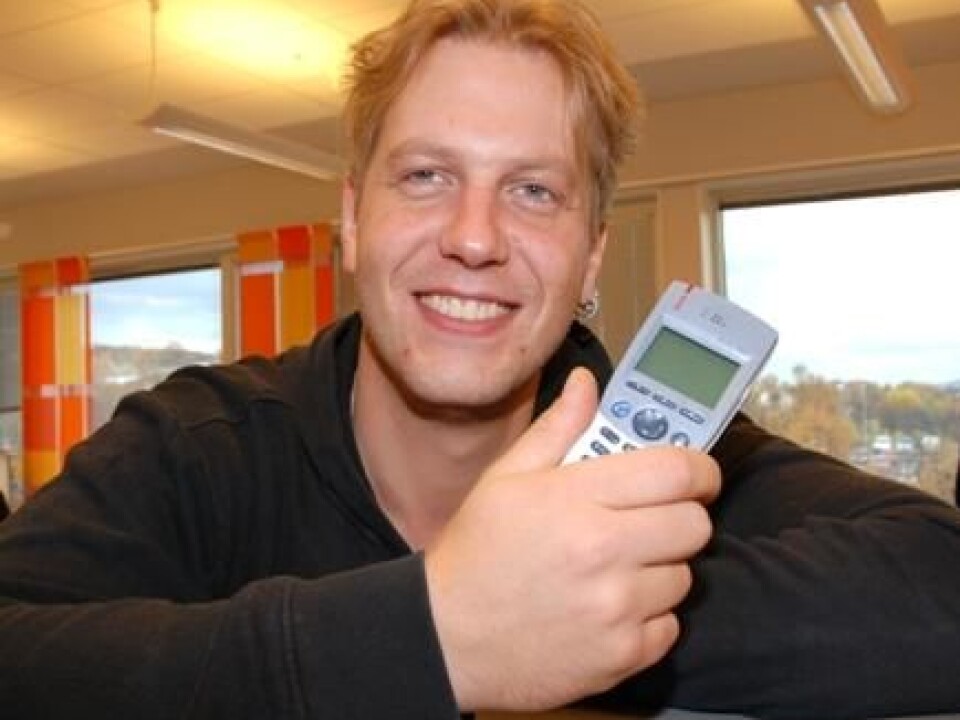
It was Solvoll’s own experience of being hospitalised after a motorcycle accident which led him on to the project. “I noticed that the hospital communication didn’t really work, and began to develop ideas on how it could be improved.”
Not wasting any time, after discharge he quit his job and returned to academia in order to carry out the research.
Shadowed 11 physicians
As part of the project Solvoll shadowed 11 hospital physicians through their work day to document how often they were interrupted by calls – clocking up a total of 135 hours during May and June 2009.
In his two months of field research he was introduced as a medical student, enabling him to accompany the physician into operating theatres, outpatient facilities and other areas of the hospital. The physicians were informed of his research, and he had to sign a confidentiality agreement prior to the fieldwork.
Interrupted in most circumstances
“I saw doctors being interrupted in most cirumstances - anything from examinations and operations to childbirth,” he says.
In his report he concludes that the frequent interruptions from mobile devices “are a problem for both physicians and patients”. Thephysicians become frustrated, which in turn has an impact on the patient.
New hospital communications underway
The findings will feed into a new hospital communications system under development at NST, which aims to solve the problem of intrusive interruptions.
The ‘CallMeSmart’ system divides the hospital area into different zones, switching the phone automatically from ordinary call status to silent or off mode depending on location or activity.
For instance, if the physician is in the operating theatre, the system sensors will register this and turn off incoming calls. The call will instead be diverted to another on-call physician. As a backup it would still be possible to override the ‘off’ mode to contact the operating physician in emergencies.
“This system intends to reduce interruptions and at the same time minimise the number of communication devices needed per user,” the report suggests.








